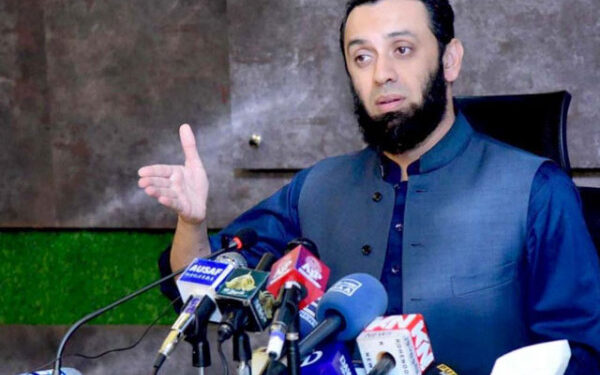ISLAMABAD: Federal Information Minister Attaullah Tarar has issued a grave warning, citing credible intelligence reports that India may be planning to launch a military offensive against Pakistan within the next 24 to 36 hours. The minister revealed that the alleged justification for this potential aggression stems from the recent Pahalgam incident in Indian-administered Kashmir—a narrative Pakistan firmly rejects as baseless and fabricated.
Pakistan Raises Alarm Over Imminent Indian Military Threat
In a press conference held in Islamabad, Atta Tarar highlighted Pakistan’s deep concerns regarding what it sees as a premeditated and provocative move by India. According to intelligence sources shared with Pakistan’s civil and military leadership, India is preparing for some form of limited military action under the pretext of retaliating for the Pahalgam incident.
Tarar emphasized that any such aggression would be a violation of international norms and a grave threat to regional peace and security.
“Pakistan has received solid intelligence suggesting that India is preparing for an unprovoked military strike within the next 24 to 36 hours. We categorically reject the baseless accusations being used to justify this potential offensive,” said the Federal Information Minister.
Background: What Happened in Pahalgam?
The current tensions stem from an incident in Pahalgam, a scenic town located in the Indian-administered region of Jammu and Kashmir. Indian authorities have claimed that a terrorist-related episode took place there recently, which they allege has links to Pakistani territory. However, no concrete evidence has been publicly presented to support these accusations.
India has often blamed Pakistan for supporting cross-border militancy in Kashmir—a claim Pakistan consistently denies. Islamabad maintains that it provides only moral, diplomatic, and political support to the Kashmiri people in their struggle for self-determination as per UN resolutions.
Pakistan Offers Transparent Investigation—India Refuses
In a gesture to maintain peace and demonstrate accountability, Atta Tarar stated that Pakistan had offered a transparent and impartial investigation into the Pahalgam incident. The objective was to uncover the truth and avoid any escalation based on misinformation or unfounded blame.
“Being a responsible state, Pakistan has offered to conduct a thorough and neutral probe into the Pahalgam incident. Unfortunately, India has rejected this reasonable proposal, preferring to adopt an aggressive and confrontational stance,” Tarar lamented.
This refusal, according to the minister, raises questions about India’s true intentions. He criticized New Delhi for acting as “judge, jury, and executioner” in a matter that requires international scrutiny and cooperation.
India’s Aggressive Posture Risks Regional Peace
Minister Atta Tarar expressed strong concern that India’s posture threatens not just bilateral relations but the peace of the entire South Asian region. He warned that if India proceeds with military action, it could trigger a wider conflict with potentially disastrous consequences for global stability.
“India’s rejection of diplomacy and its preference for confrontation are highly irresponsible. If war erupts, the responsibility for all consequences—humanitarian, economic, and political—will lie squarely with India,” he asserted.
Pakistan’s Longstanding Position Against Terrorism
Reiterating Pakistan’s principled stance, Atta Tarar stated that Pakistan has itself been a victim of terrorism for more than two decades. Thousands of civilians and security personnel have lost their lives in terrorist attacks carried out by both domestic and foreign elements. Pakistan, therefore, understands the pain and devastation that terrorism inflicts and unequivocally condemns it in all forms and manifestations.
“Terrorism has plagued our region for far too long. Pakistan has paid a high price fighting this menace and continues to stand against it—anywhere in the world,” he said.
This statement was aimed at rebutting India’s narrative, which attempts to link Pakistan to every security incident in Kashmir without credible evidence.
International Community Must Take Notice
The Federal Information Minister revealed that Pakistan has already begun engaging with the international community, informing key global actors and institutions—including the United Nations, the Organization of Islamic Cooperation (OIC), and major world powers—about the deteriorating situation and India’s possible military intentions.
Pakistan has urged the world to intervene diplomatically to defuse the situation and prevent escalation.
“We have warned our allies and international partners about this alarming development. The world must not stay silent. We urge them to press India to act responsibly and avoid military adventurism,” Tarar added.
Pakistan Prepared for a Decisive Response
Sending a strong message of deterrence, Atta Tarar made it unequivocally clear that Pakistan will respond decisively to any military aggression.
“Let there be no doubt—if India chooses to undertake any kind of military misadventure, Pakistan will respond with full force. Our armed forces are fully alert, and the Pakistani nation stands united to defend its sovereignty and territorial integrity at all costs,” he declared.
The minister’s comments reflect the heightened alert status of Pakistan’s armed forces amid escalating regional tensions. Media reports suggest that military installations and border security forces have been placed on high alert following the intelligence reports.
India’s Political Motivations Questioned
In a pointed criticism, Tarar accused the Indian government of attempting to stoke nationalist sentiments for political mileage ahead of upcoming elections in various Indian states. He alleged that India’s ruling party, under Prime Minister Narendra Modi, has repeatedly resorted to anti-Pakistan rhetoric and military theatrics to divert attention from domestic challenges, including economic difficulties, rising unemployment, and social unrest.
“This is a familiar pattern. Every time there is political trouble at home, the Indian leadership manufactures a crisis with Pakistan. It’s a dangerous and irresponsible way to handle international relations,” said the minister.
Global Peace at Stake
Atta Tarar’s warning carries deeper implications not just for India and Pakistan but for the global security landscape, especially considering both nations are nuclear-armed states. Any military clash between the two could escalate rapidly and risk devastating consequences far beyond South Asia.
Security analysts have long warned that South Asia remains one of the world’s most volatile regions, and flashpoints like Kashmir continue to pose serious threats to global peace if not handled with diplomacy and restraint.
Conclusion: Need for De-escalation and Dialogue
In closing his remarks, Atta Tarar urged India to return to the path of diplomacy and avoid unilateral aggression. He emphasized that regional peace and stability depend on responsible behavior, mutual dialogue, and adherence to international law.
“Pakistan stands for peace, but peace must not be mistaken for weakness. We are fully prepared to defend our nation. We once again call on India to act wisely and avoid any actions that could push the region toward war,” Tarar concluded.

























